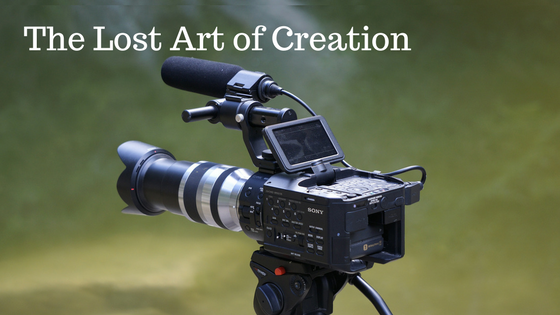LITA publishes a quarterly, open-access and peer-reviewed journal called Information Technology and Libraries (ITAL). As a regular blogger for LITA, I was embarrassed to admit that I was not familiar with this publication when I recently met with Ken Varnum, the new editor. LITA and ITAL are both devoted to exploring the intersection between technology and libraries, everything from digital preservation to vendor relations. The journal is written by and for library technologists and will celebrate its 50th anniversary in 2018. Not only is it available online, but several archival issues dating back to the 1960s are also available. Back in those days, the journal was known as the Journal of Library Automation (from 1968-1981), until 1982 when the name changed. In 2012, it switched from a print-only subscription publication to an online, open-access journal. Articles such as the 1972 “Regional Numerical Union Catalog on Computer Output Microfiche” provide a fascinating…
Author: Lorelle Gianelli
Interview with Ken Varnum
Ken Varnum, editor of Information Technology and Libraries (ITAL), kindly agreed to meet with me last month when he was in Denver for the 2017 LITA forum. We discussed his early exposure to technology, what he reads for fun, and his vision for the future of ITAL. Below is the interview in its entirety and a copy of the transcript can be found here. Tell me a little about your background. What did you study in school? Have you always been interested in technology? “Technology has been a thread through my interests since middle school when I learned BASIC and wrote highly simplistic games on my Atari 800. At Grinnell College, I received a dual degree in history and Russian language, with a lot of political science thrown in (probably a minor had Grinnell offered one). My interest was in Cold War relations and arms control. After a few years…
Spotlight Series: Rebecca McGuire

Allow me to introduce Rebecca McGuire, Visiting Instructional Tech Specialist at Mortenson Center for International Library Programs. A division of the University of Illinois Library, the Mortenson Center, provides leadership and technology guidance to libraries throughout the world. Rebecca shares information about this unique role, her favorite tech blogs, and predictions about the future of libraries. A full transcript of the interview can be found here. What is your background? “After getting a bachelor’s degree in Political Science and International Affairs, I spent a year teaching ESL students in a middle school. I loved teaching, but wanted to do it in a more informal environment, so I decided to get a Master’s in Library and Information Science at the University of Illinois. I also decided to pursue a certificate in Community Informatics, which really opened my eyes to how important access, understanding, and application of technology is to both personal…
Spotlight Series: Brittney Buckland

Have you ever seen a really interesting library position and wondered how the person got there? This series will interview tech librarians to learn more about their journey, how they stay informed about emerging technologies, and tools they can’t live without. Allow me to introduce Brittney Buckland, Head of Technical Services at Merrimack Public Library in New Hampshire. Below is an excerpt of our interview, the full transcript can be accessed here. What is your background? “My undergraduate degree is a BA in the Arts: Art History from the University of New Hampshire (UNH). I finished my MSLIS with a specialization in Library and Information Services in 2013. I completed my Master’s completely online through Drexel University. I recently finished a secondary M.Ed. in Educational Studies through UNH, also completely online.” What were some of your early library jobs and how did they prepare you for your current position? Brittney’s first…
The Lost Art of Creation

While technology is helpful, it also contributes to people becoming, well, more robotic. Siri can define the word “banausic,” eliminating the need to pull out a dictionary; while Google Maps can help you navigate to the closest ramen bowl spot, eliminating the need to look at an actual map. This series looks at technology that counteracts this trend, tools that help spark conversation, create 3-D designs, and encourage creativity. This month’s post explores YouTube and specifically the combo video/blog known as “vlog.” Launched in 2005, YouTube is a free video sharing website where users can easily upload videos and subscribe to channels. Many libraries and library associations have dedicated YouTube Channels and it’s the 3rd most popular media outlet used by digital natives (behind Facebook & Twitter). Some people might dismiss the site as just a repository of silly videos but the site’s wide reach has sparked careers and even business ventures. Sal…
The Lost Art of Creativity

The Lost Art series examines tech tools that encourage communication between libraries and its users. The Lost Art of Conversation looked at ways that podcasts can connect with the community, as well as the technology required to create a professional podcast. This month is all about the 3-D printer, a tool that creates three dimensional objects based on a digital design. A brief history of this technology: the first patent was issued in the 1980s and today these printers can create anything from a kidney to a car. A 2016 Pew Research Study found that 50% of those polled think 3-D printers are a good investment for libraries (up 5% from 2015) and this number goes up when people are broken out by race: “69% of blacks and 63% of Hispanics say libraries should definitely buy 3-D printers and other high-tech tools, compared with 44% of whites.” Some people might…
The Lost Art of Conversation

Technology is often viewed as a double edged sword: it makes life easier but it also has the power to threaten jobs, privacy, and human connections. Yale University & Oxford’s Future of Humanity Institute polled industry experts in 2016 and found that machine intelligence (A.I.) will replace all human jobs by 2136. Despite statistics like this, I’d like to make the case that there are many ways that technology actually revitalizes communication. The next few posts will explore tech tools, like podcasts, that encourage rather than diminish human connections. Podcasts are everywhere, even TV legend Levar Burton recently announced his upcoming podcast: “LeVar Burton Reads.” That’s right, the host of Reading Rainbow who encouraged us to read as children is back, 2.0 style, with a podcast where he will read a “piece of short fiction.” A very brief history of the term “podcast”: Ben Hammersley, a British Journalist, invented the…